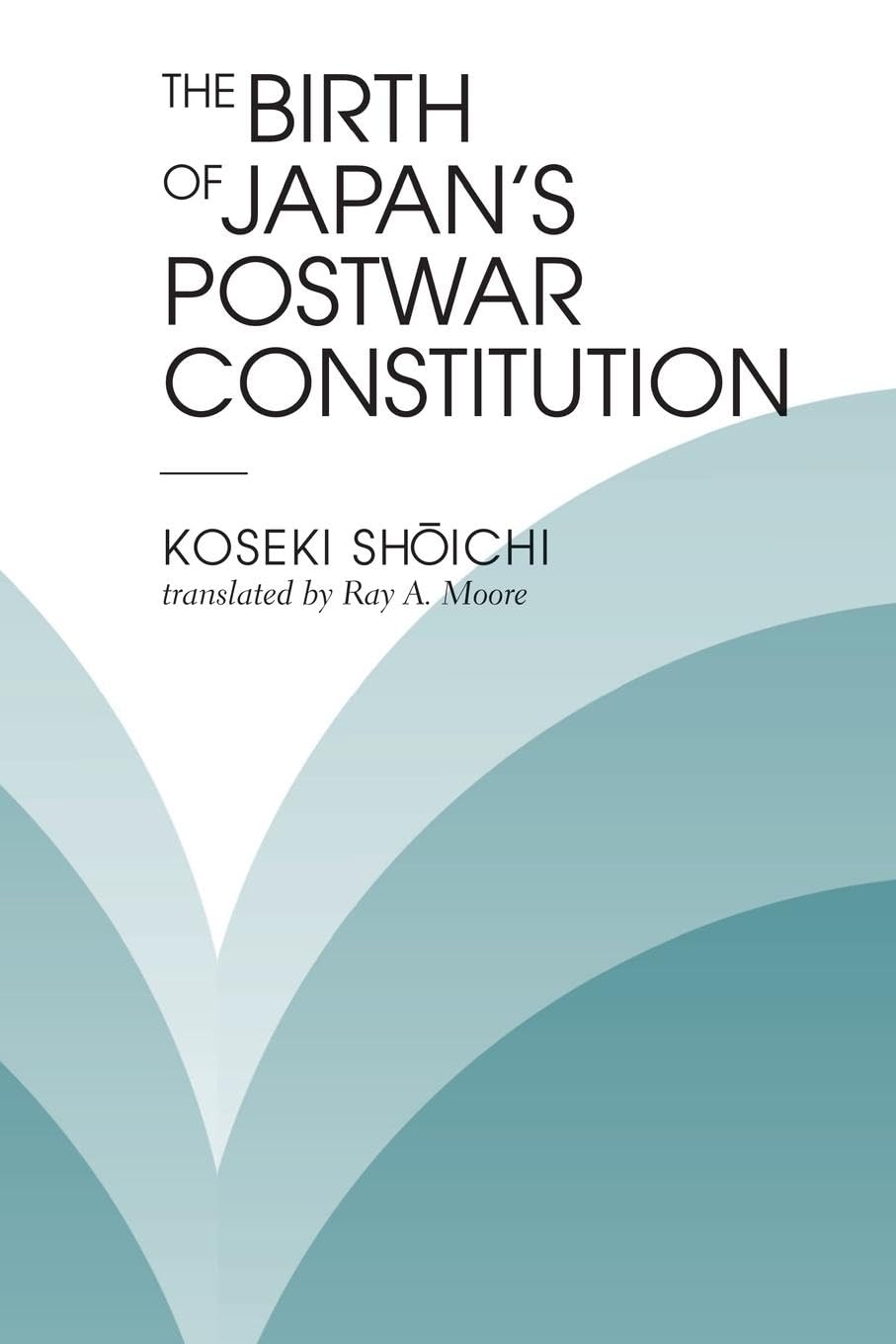The Birth Of Japan's Postwar Constitution
The Birth Of Japan's Postwar Constitution is backordered and will ship as soon as it is back in stock.
Couldn't load pickup availability
Genuine Products Guarantee
Genuine Products Guarantee
We guarantee 100% genuine products, and if proven otherwise, we will compensate you with 10 times the product's cost.
Delivery and Shipping
Delivery and Shipping
Products are generally ready for dispatch within 1 day and typically reach you in 3 to 5 days.
Book Details
-
Author: Koseki Shoichi
-
Edition: 1
-
Binding: Paperback
-
Number of Pages: 271
-
ISBN: 9780813334950
-
Language: English
-
Release Date: 20-03-1998
-
Package Dimensions: 9.0 x 6.1 x 0.7 inches
About The Book
Japan's Postwar Constitution is an essential work for anyone interested in understanding the history, politics, and foreign policy of postwar Japan. This 1989 Yoshino Sakuzo prize-winning book offers the most complete English account of the origins of Japan's constitution, focusing on the dramatic events of 1945–1946 that led to the birth of Japan's new constitution.
Author Koseki Shoichi challenges the widely accepted interpretation that General Douglas MacArthur, faced with inept Japanese efforts and Soviet interference, secretly ordered his staff to draft the constitution in just seven days. Instead, Shoichi presents a more nuanced view, arguing that the process of framing the constitution was complex, involving a clash of legal ideas, conflicting political efforts, and contributions from individuals with no government ties.
Drawing on a wealth of archival material from Japan, the United States, and Australia, as well as recent scholarly research, this book provides fresh interpretations of key events and figures, such as MacArthur's actions, the Ashida amendment to Article 9, and the influence of Yoshida. Koseki also critiques the conservative defenders of the old order in Japan, offering a reevaluation of Japanese liberal and socialist ideas about constitutional reform, as well as the Far Eastern Commission's influence on shaping Japan's antiwar constitution. This book is a vital resource for anyone seeking a deeper understanding of Japan's postwar constitution and its creation.





